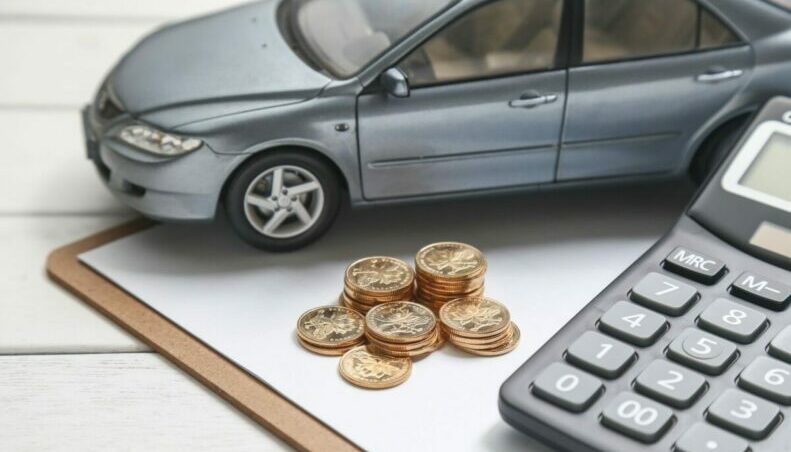This article will explore how individuals can claim their work-related vehicle expenses as tax deductions. Whether you drive a car or use an alternative vehicle for your work duties, we outline common methods used to track, record, and calculate your vehicle expenses.
The guide also highlights common misconceptions of the things you can and cannot claim as a vehicle expense when claiming tax deductions.
Cars as a tax deduction
Cars are defined by the ATO as “motor vehicles (excluding motorcycles and similar vehicles) that carry loads less than one tonne and less than nine passengers”. Many four-wheel drive vehicles are included in this definition.
Expenses you can claim
You can only claim vehicle expenses if you use your car for work duties. Such as attending meetings that are not at your regular workplace, travelling to a client’s house, delivering, or collecting supplies.
You can only claim expenses travelling between home and work if your employer requires you to start work at home then travel to a workplace, you have no fixed workplace and travel from one site to another, you carry equipment for work that are essential for work duties that can only be conveniently transported by a vehicle and the workplace cannot securely store the items at the workplace.
Expenses you cannot claim
You cannot claim expenses on your car if you are travelling from home to work and vice versa, only under certain circumstances. If your employer reimburses you for your car payments, salary sacrifice, or have a novated lease, you cannot claim vehicle expenses as you typically do not own the car.
Methods to claim car expenses
If you use your car in your car for work related duties, there are two different methods for claiming tax deductions. These are:
- Cents per kilometre method
- Logbook method
Cents per kilometre method
The cents per kilometre method uses a single rate per kilometre and allows you to claim up to 5,000 kilometres per annum for using your car for business purposes.
You will need to keep written evidence of the amount of business kilometres you have travelled. This can be done on a simple diary or log.
The 5,000 kilometres is on a per car basis. Where a car is jointly owned, and the car is used for different income generating purposes you can each claim 5,000 business kilometres.
The cents per kilometre rate is as follows:
| Year | Cents per km rate |
| FY24-25 | 88 cents |
| FY23-24 | 85 cents |
| FY22-23 | 78 cents |
| FY20-21, 21-22 | 72 cents |
| FY18-19, 19-20 | 68 cents |
| FY15-16, 16-17, 17-18 | 66 cents |
Cents per KM deduction checklist
| Drive to see customers |  |
| Drive to see suppliers or pick up supplies |         |
| Carry around bulky tools |         |
| Drive to seminars |         |
| Drive to second job |         |
| Drive to and from work | |
| Max claim 5,000 kms |         |
| Maintain logbook |         |
Check your claim on the free calculator
Download your free logbook here
Cents per km reimbursement rate for employees
Most employers reimburse their employees by paying an allowance equal to the cents per km rate for the financial year. This is reportable on the group certificate (annual payment summary) that your employer submits to the ATO. The cents per km reimbursement rate for employees shows up as an allowance on your group certificate.
You will need to claim a tax deduction for the cents per km reimbursement to ensure that you are not taxed on this at the time of lodging your online tax return.
Cents per km calculator
Use this cents per km calculator to check you tax deduction. You can also this as a cents per km reimbursement calculator to check your employer is reimbursing you correctly.
To use this cent per km calculator, select the financial year you are calculating and enter in the number of kms you have travelled or expect to travel – remember this maxes out at 5,000 kms. You can then see the expected tax deduction for the cents per km method.
How many kms can you claim on tax?
If you’re wondering how many kms you can claim on tax… You can claim as many as you have driven for work related purposes (excluding to and from work) with a maximum of 5,000 kms per annum. You cannot claim more than 5,000 kms on tax using the cents per km method. 5,000 kms is the ATO’s upper limit for the cents per km claim.
Logbook method
Using the logbook method, you claim the work-related portion of your actual expenses for the car. To work out the work-related portion of your use, you need to retain a logbook for a minimum continuous period of 12 weeks. All expenses associated with the car are then tax deductible based on the percentage of business use determined in your logbook.
Your logbook is valid for 5 years, however if your circumstances change, you will need to complete a new logbook. Your circumstances might change if you move house, get a new contract etc.
An expense you can claim under the logbook method is depreciation of the cost of the car. You will still use the percentage determined in your logbook as the basis for your tax deduction and there is a limit on how much you can claim deprecation for.
Download your One Click Life logbook HERE
Car depreciation limit
There is a limit on the cost you can use to work out the depreciation of cars. The maximum value you can use for calculating your claim is the car limit irrespective of whether you paid more for the car. Presently with accelerated depreciation rules there is a temporary full expensing of the cost of a business asset which you would likely qualify for.
| Year | Car Limit |
| FY25 | $69,674 |
| FY24 | $68,108 |
| FY23 | $64,741 |
| FY22 | $60,733 |
| FY21 | $59,136 |
| FY20, FY19, FY18 | $57,581 |
Example: Applying the car limit
In July 2021, you buy a car for $88,000 (including GST) to use strictly for work.
- If you’re not registered for GST, as you bought the car in the 2021–22 financial year, you reduce the depreciable amount to $60,733.
- If you are registered for GST, you would also claim $8,000 GST back in your Business Activity Statement.
Damage to a third-party motor vehicle
If you are involved in a motor vehicle accident while working and you damage another vehicle, you may be able to claim deductions for the cost to repair your vehicle or the cost to repair the other vehicle if you are liable. The expenses for your liability to pay for damages are costs you incur in earning your employment income. They are not capital, private, or domestic.
Other Vehicles as a tax deduction – Actual Costs Method
If you use a vehicle other than a car for work purposes, you must use the actual costs method to claim deductions.
Vehicles other than cars include motorcycles, vehicles that seat more than eight people, vehicles that are designed to carry goods such as trucks, van etc.
The actual costs are based on the receipts collected for all work-related vehicle expenses. If you use the vehicle for private and work use, you can only claim the expenses related to work use and can be worked out as a percentage of the vehicle use.
Example: Actual cost method
You use your motorcycle for work making deliveries and personal use. You track your work-related use using a logbook. For the 12-week period you maintained a logbook you travelled 800km in total and 600km for work. You calculate the work use by dividing 600km by 800km to get 75%.
By keeping receipts of the expenses of the motorcycle including fuel, registration, etc, your total expenses amount to $3600. To work out your work-related costs you multiply $3600 by 75% to get $2700.
Using someone else’s car
If you use someone else’s car for work duties, you can claim the expenses using the actual costs method mentioned above. If you can prove the owner has arranged the use of the vehicle, you can use the logbook or cents per kilometre method to record your use if the vehicle, although it is not required, it is an easy way to prove your use of the vehicle.
Claiming deductions for other vehicles
You cannot claim other vehicle expenses under work-related car expenses, you must claim the deductions under the work-related travel expense section.
Damage to a third-party motor vehicle
If you are involved in a motor vehicle accident while working and you damage another vehicle, you may be able to claim deductions for the cost to repair your vehicle or the cost to repair the other vehicle if you are liable. The expenses for your liability to pay for damages are costs you incur in earning your employment income. They are not capital, private, or domestic.
Depreciation of motor vehicle
Like the use of a car, when using the actual costs method, you can claim a deduction for capital expenses such as the depreciation of vehicle’s purchase price.
If you are using the actual cost method while using a car you are subject to the following depreciation limits.
| Year | Car Limit |
| FY25 | $69,674 |
| FY24 | $68,108 |
| FY23 | $64,741 |
| FY22 | $60,733 |
| FY21 | $59,136 |
| FY20, FY19, FY18 | $57,581 |
One Click Life – your financial life made simple!
You want a simple financial life right? We exist to make that a reality! We do this by providing financial products that are simple to use from your mobile phone. We’ll keep creating awesome, simple products that empower you to run your financial life and get in contact if you need a hand with anything.
- Simple online Tax Returns
- Simple online Wills
- Simple online Personal Loans
- Simple online Mortgages
One Click Life. Your financial life made simple

